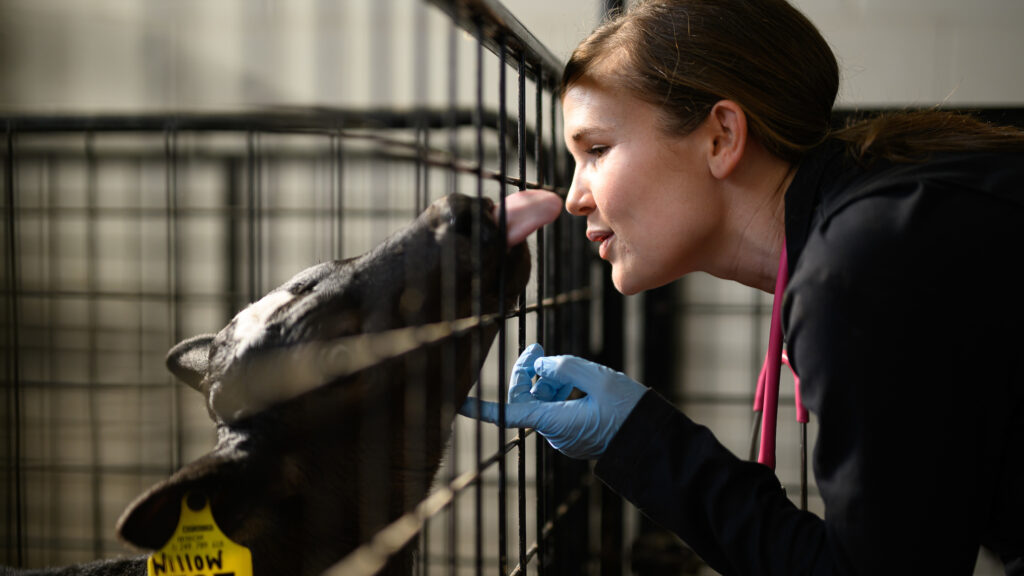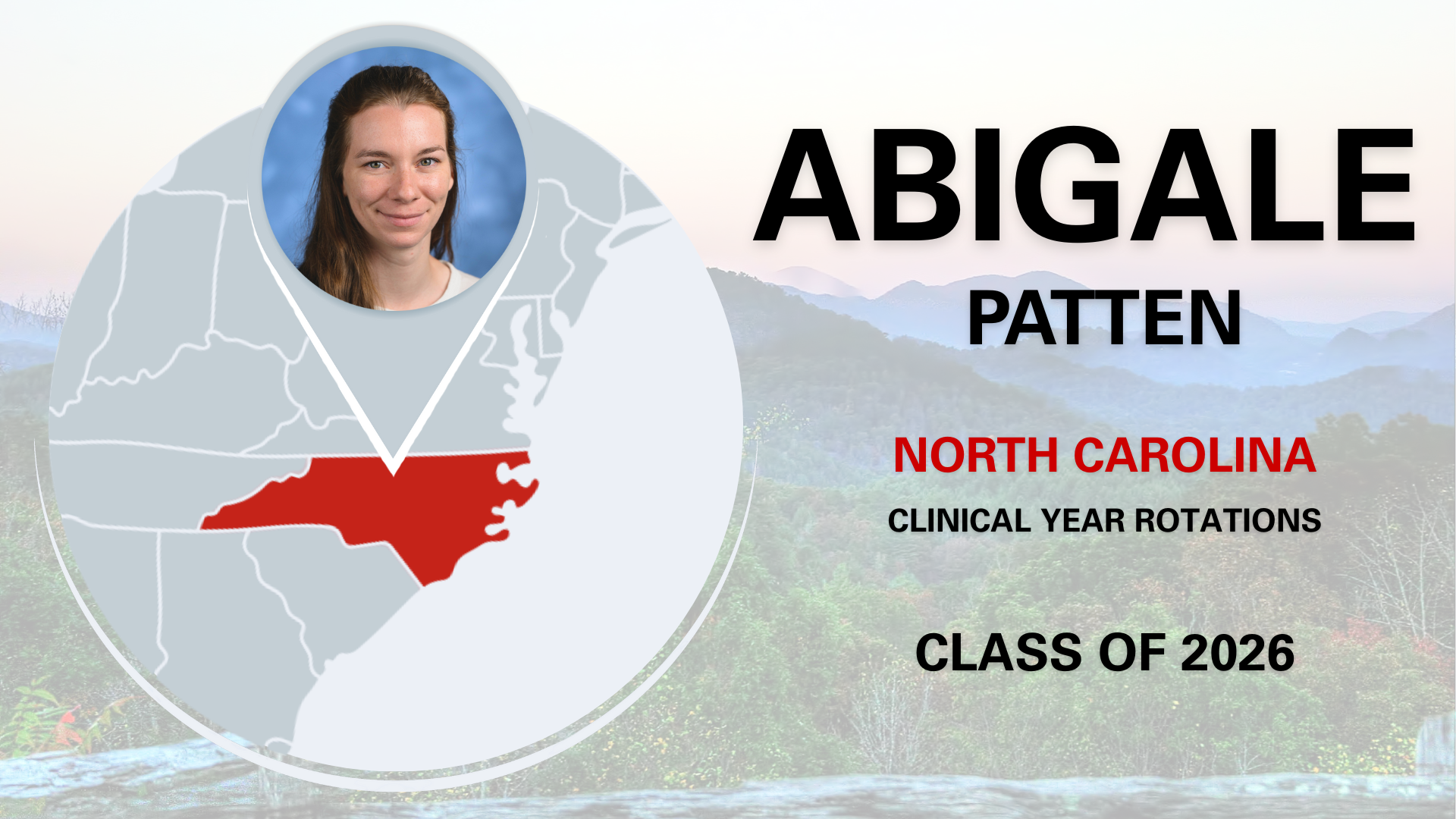Say Hello to Our New Clinical Veterinarian for the Teaching Animal Unit, Reedy Creek
Allison West, most recently an ambulatory large animal veterinarian in Sanford, North Carolina, has been on the job since November.
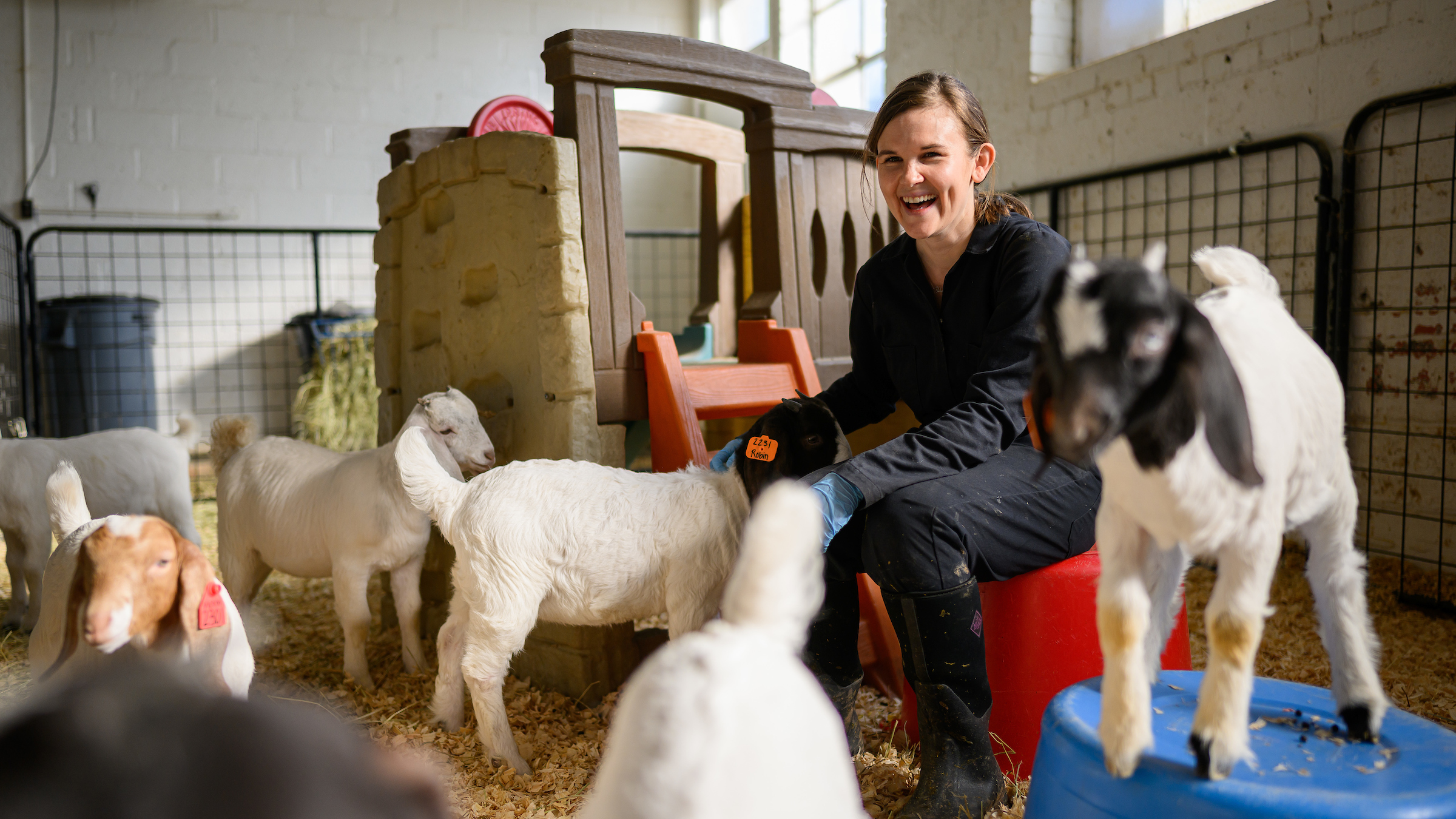
Taking its beloved Teaching Animal Unit to the next level of excellence, the NC State College of Veterinary Medicine has created the role of clinical veterinarian for the unit and the Reedy Creek Equine Farm.
Allison West, most recently an ambulatory large animal veterinarian seeing horses, ruminants and backyard poultry and swine around Sanford, North Carolina, has been on the job since November.
“This is a new and very important role for the college,” says Kate Meurs, dean of the NC State College of Veterinary Medicine. “We hired Dr. West because she has a vision for providing the very best medical care for the horses and farm animals that live at the NC State CVM. She is very experienced and is able to work with the faculty and the students to balance the needs of our animals ”
The Teaching Animal Unit, a working farm right outside the college’s doors, allows students to learn husbandry, production management and procedures used routinely in livestock production all within walking distance of their classrooms.
West, who received her DVM from the University of Georgia in 2016 and completed an equine exclusive rotating internship at the Tennessee Equine Hospital in 2017, says she has never heard of another college that has a farm learning lab like NC State’s.
“Students get, from their first year, hands-on experience with all species,” West says. “Even if only 10 go into large animal practice long-term, everyone is being equipped with basic knowledge, how to castrate, do a physical exam. It’s invaluable. So many other schools, it depends on what you see on rotation, what comes in the hospital. This is a model all schools should adopt. It’s a really awesome program.”
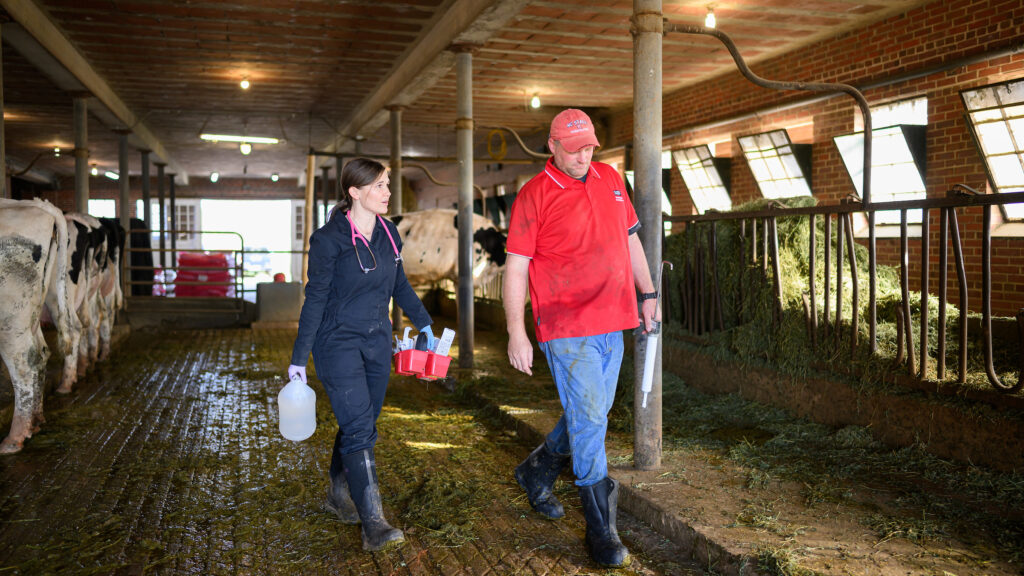
Prior to the college’s creating the clinical veterinarian role, a TAU director oversaw the facility and called in expert faculty clinicians to treat animals as needed.
“Now if an animal has an issue, I can be looking at it within an hour,” says West, who also spent four years at an equine and large animal practice in California before moving to North Carolina in 2021. “These animals, the smallest scratch gets reported. They are definitely well cared for. Nothing gets missed. If they’re squinting or taking a funny step, they get looked at that day. These animals are dedicated to teaching, so we honor that. We honor their service by making sure they get the best care possible.”
The Teaching Animal Unit currently has about 50 dairy cows, 60 beef cows, 65 pigs – including a whole pen of new piglets – 50 goats and more than 100 chickens. The Reedy Creek Equine Farm is home to about 70 horses.
“I take care of all of these animals,” West says. “The best part is I have access to all these bright minds right there on the campus or in the hospital so, if something is outside my wheelhouse, I don’t have to go very far. There is state of the art care right in the backyard, and you can’t get any better than that.”
West calls her position a “unicorn” role, an absolute dream come true for her.
“Usually when a veterinarian transitions from private practice to academia, the fear is that you’ll lose the hands-on care, and we love doing that all day,” says West, who lives on her own small farm in Sanford with her husband, new baby, two cats, three dogs, a mini donkey, a mini horse, a mare and a pair of ducks named Marge and Marf. “In this role, it’s all hands-on, and I get to work with students and outstanding faculty members.”
As a child, West says, she was obsessed with animals. When she was 10, she took a week of horse-riding lessons and never looked back.
“You never know what one week of summer camp will lead to,” she says. “Horses have been my life since then.”
West saw the Teaching Animal Unit goats through kidding season and now is preparing for calving season, which she says is especially thrilling because of the new $5.5 million dairy barn going up on campus.
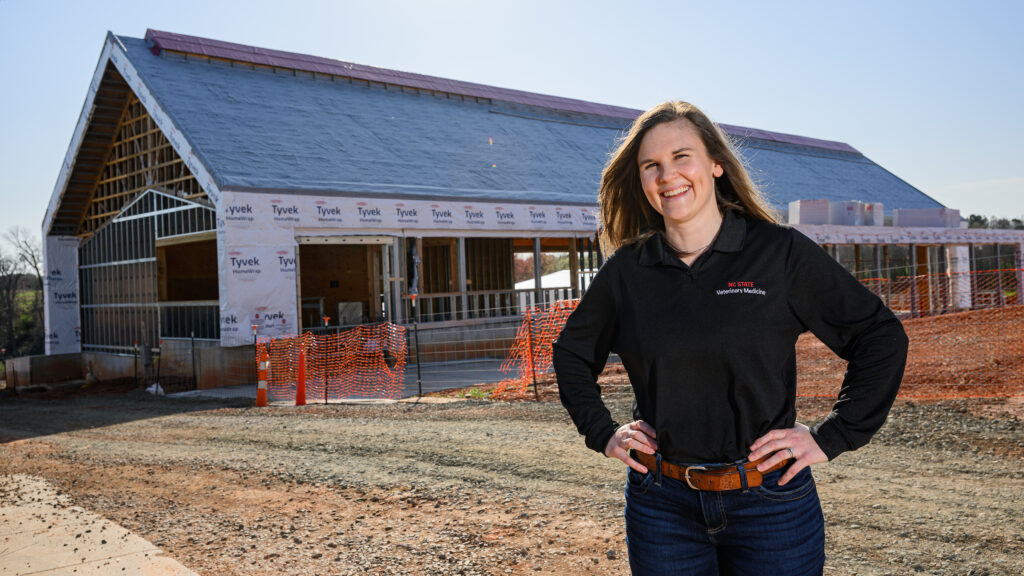
“We’re very excited to get the girls in there,” West says. “It’s going to be state of the art. We are going to have this cool chute that allows you to look at a dairy cow’s foot. Cows aren’t like horses. You can’t just pick up their feet.”
Being able to look at the cows’ feet is important because of the North Carolina clay and mud, she says. It can be difficult for cows to pull their feet from the muck, and they can become injured. The new equipment will allow West and students to address lameness and foot issues more easily.
The NC State College of Veterinary Medicine also is kicking off a campaign to build a modern Equine Veterinary Center, another exciting development for West.
“Equine medicine has made so many strides since I got out of school seven years ago,” she says. “MRIs, diagnostics. It’s an exciting frontier to be on. It’s much easier to scan a dog. It’s nice to see that gap close a little bit, that we’re coming up with better treatments for equines, which kind of straddle that line between pets and livestock.”
At the Teaching Animal Unit, West also works with dairy manager Mike Veach, swine manager James Lucas and small ruminant manager Marissa Thompson. Jessica Dunkley coordinates the students who work on staff at the unit.
“The TAU is just invaluable for correlating for students what they’re learning in the classroom,” West says. “Other schools, you’re in only the classroom for three years, and it’s hard to draw those connections when you’re sitting there looking at a screen. Here, you see how to do an exam on a goat and then can go out and do it. Correlating that classroom with hands-on learning is critical. You don’t have to remember in your fourth year what you learned three years ago. This place is amazing.”
